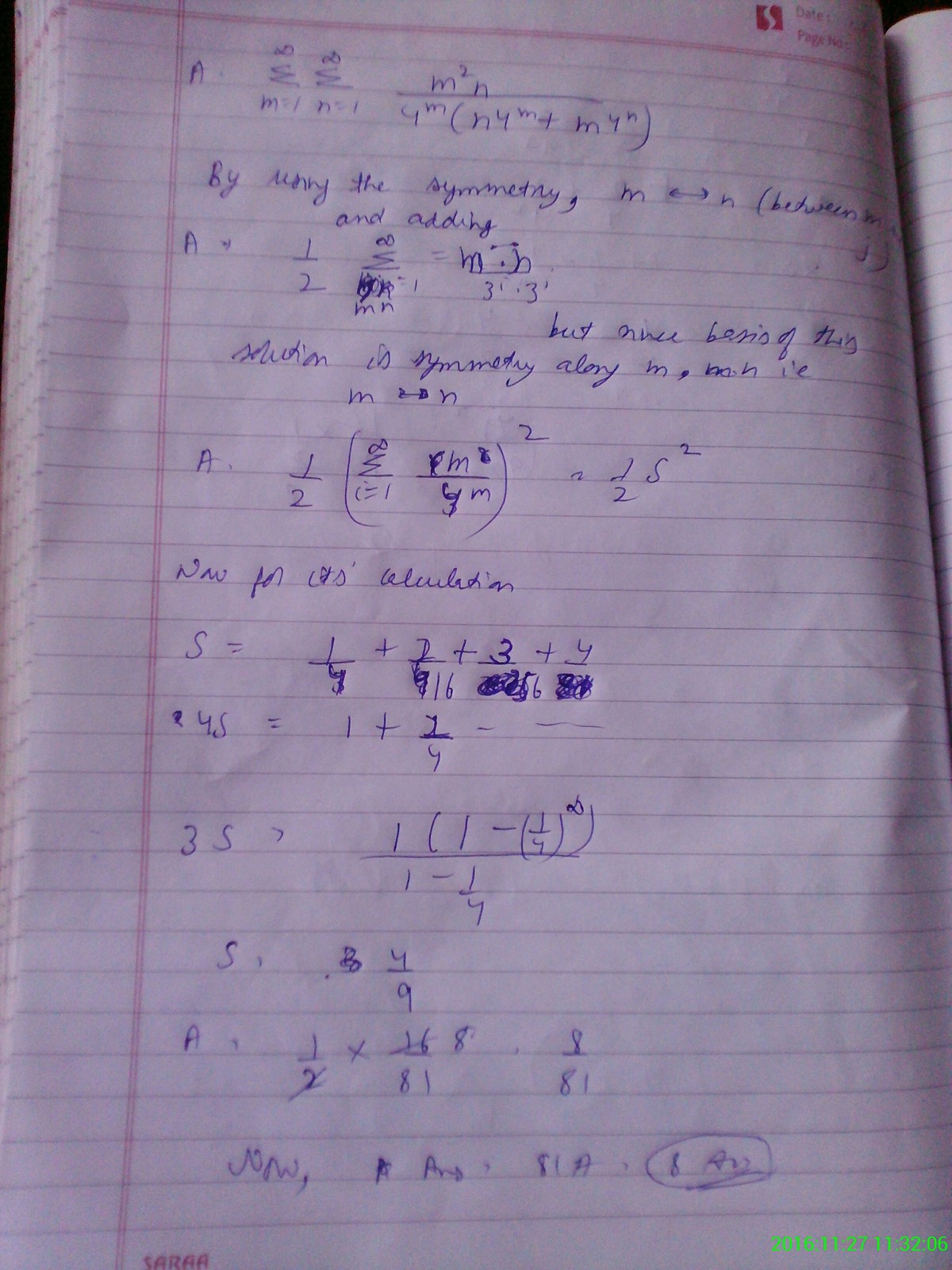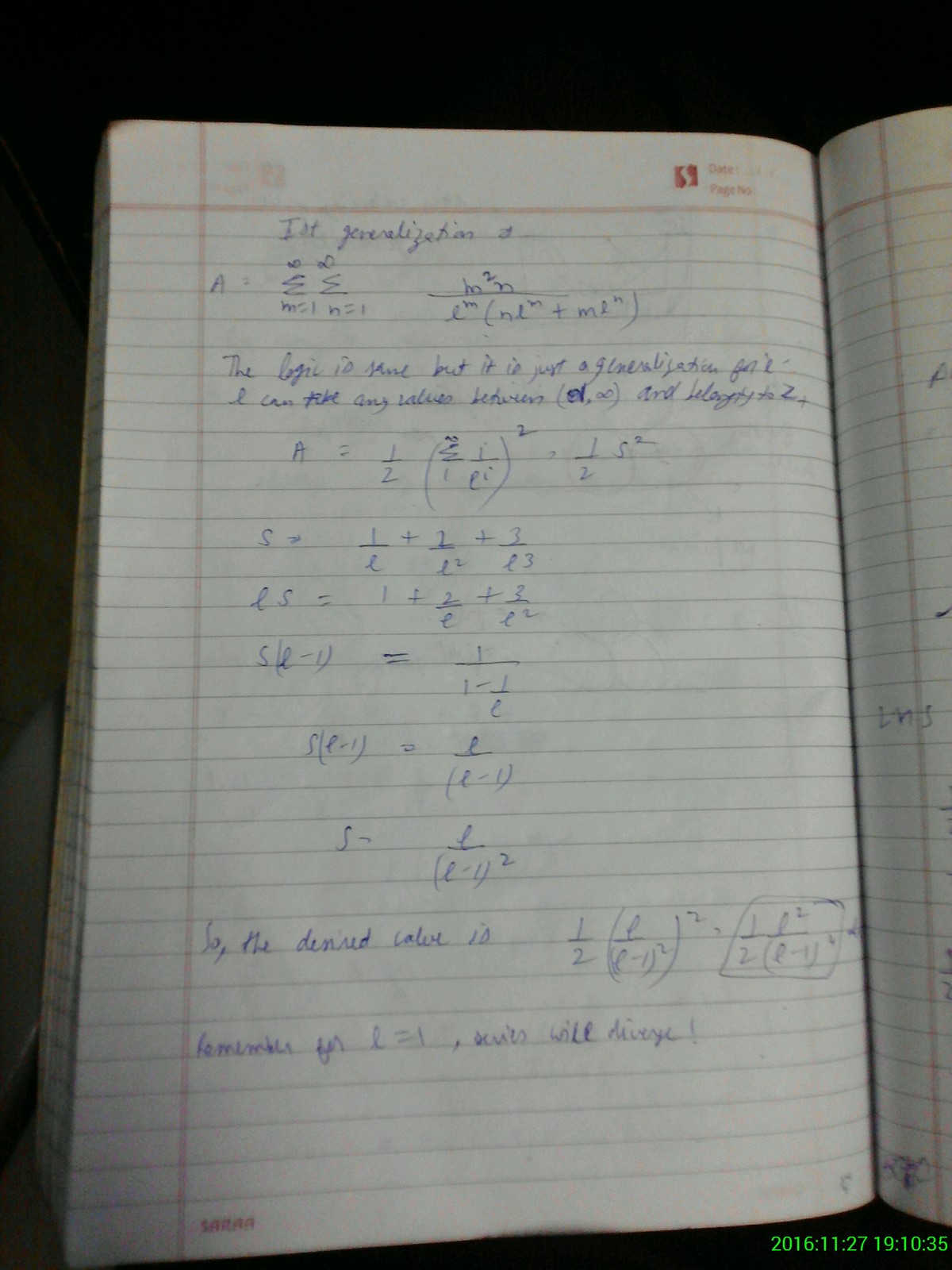A calculus problem by neelesh vij
A = m = 1 ∑ ∞ n = 1 ∑ ∞ 4 m ( n 4 m + m 4 n ) m 2 n
Find 8 1 A .
The answer is 8.
This section requires Javascript.
You are seeing this because something didn't load right. We suggest you, (a) try
refreshing the page, (b) enabling javascript if it is disabled on your browser and,
finally, (c)
loading the
non-javascript version of this page
. We're sorry about the hassle.
3 solutions
I think, ∣ k ∣ > 1 .
Treating m and n as identical and different and replacing m with n and n with m we get
Adding the two series we get an AGP Which can be easily evaluated
i would like to write it clearly ...
 here is a generalisation..
here is a generalisation..

Let's generalize these for any k > 1 .
Say S = m , n ≥ 1 ∑ k m ( m k n + n k m ) m 2 n = m , n ≥ 1 ∑ k n ( m k n + n k m ) n 2 m
We get by adding 2 S = m , n ≥ 1 ∑ k m + n ( m k n + n k m ) m n ( m k n + n k m )
2 S = m , n ≥ 1 ∑ k m + n m n = m = 1 ∑ ∞ k m m n = 1 ∑ ∞ k n n
A further generalization says m = 1 ∑ ∞ k m m = ( k − 1 ) 2 k putting which we get ,
2 S = 8 1 1 6 ⟹ 8 1 S = 8